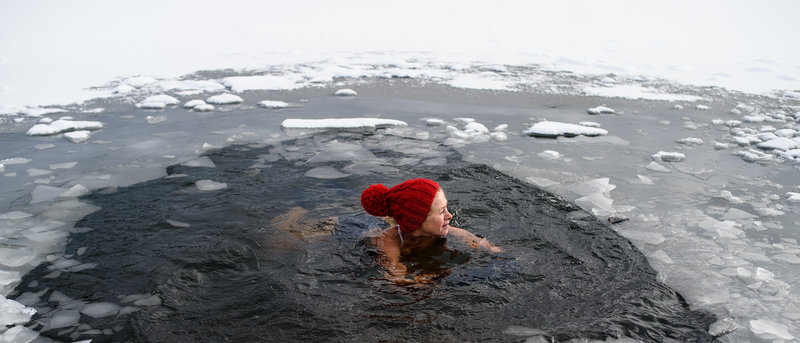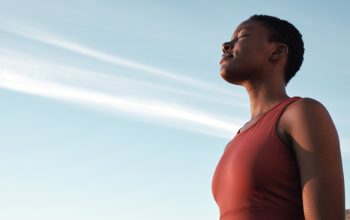

Imagine plunging into a crystal-clear, ice-cold lake surrounded by nature’s tranquility, your breath calm and controlled despite the shock of the frigid water. This is the experience of wild swimming, enhanced by the Wim Hof Method (WHM). In this article, we’ll explore what it’s like to go wild swimming using the WHM, a practice that combines the benefits of cold exposure with the power of controlled breathing.
The Wim Hof Method in Brief
The Wim Hof Method, developed by Dutch extreme athlete Wim Hof, is a holistic approach to well-being that incorporates three key elements:
- Breathing Exercises: The WHM involves controlled hyperventilation followed by breath retention, which is believed to optimize oxygen intake and reduce carbon dioxide levels in the body.
- Cold Exposure: Cold exposure, whether through cold showers, ice baths, or outdoor activities in cold environments, is a fundamental aspect of the method. It aims to boost the immune system, improve circulation, and increase mental resilience.
- Mindset and Meditation: Mental training and meditation techniques are integrated into the WHM to enhance focus, reduce stress, and promote a sense of well-being.
Wild Swimming with the Wim Hof Method: A Journey
Wild swimming, also known as open water swimming, involves taking a dip in natural bodies of water such as lakes, rivers, or the ocean. When combined with the WHM, this experience becomes transformative:
1. The Breath:
Before entering the water, WHM practitioners engage in a series of deep breaths. These controlled breaths help to oxygenate the body, prepare the mind, and create a sense of calm focus. This breathwork is vital, as it helps control the initial shock of the cold water.
2. The Plunge:
Stepping into the cold water is a sensation like no other. Initially, there’s a gasp as the cold takes hold, but the controlled breathing learned in the WHM helps maintain composure. The shock soon gives way to exhilaration.
3. Adaptation:
With each moment in the water, the body adapts. Blood vessels constrict, redirecting blood flow away from the skin’s surface to conserve heat. The initial discomfort transforms into a soothing, almost meditative experience.
4. Mental Resilience:
Wild swimming with the WHM is not just a physical challenge; it’s a mental one too. Practitioners learn to control their thoughts and focus on the present moment, an essential skill in both the water and everyday life.
5. A Connection to Nature:
Wild swimming connects individuals to nature in a profound way. The serene surroundings, the sensation of water against the skin, and the sound of nature create a sensory experience that is both grounding and revitalizing.
6. The Afterglow:
Emerging from the water, there’s a sense of accomplishment and invigoration. The body’s circulation increases, creating a warm, tingling sensation, often referred to as the “afterglow” of the WHM.
Benefits of Wild Swimming with the WHM:
- Enhanced Immunity: The combination of cold exposure and the WHM’s effects on the immune system may help boost resistance to infections.
- Mental Resilience: Wild swimming fosters mental toughness, which can translate to increased stress resilience in daily life.
- Improved Circulation: Cold water immersion can enhance circulation, potentially benefiting heart health.
- Stress Reduction: The mindfulness cultivated through the WHM and the serenity of wild swimming can significantly reduce stress levels.
- Natural Connection: Engaging with nature in this way promotes a sense of connectedness and well-being.
In Conclusion
Wild swimming with the Wim Hof Method offers a unique journey into the world of natural water bodies. It’s a practice that tests physical and mental limits while fostering a deep connection to the natural world. Whether you’re a seasoned WHM practitioner or someone looking to embark on a new adventure, wild swimming with the WHM invites you to embrace the power of the breath, the resilience of the mind, and the beauty of the great outdoors. It’s an experience that not only invigorates the body but also rejuvenates the spirit, leaving you with a profound sense of vitality and appreciation for the world around you.


